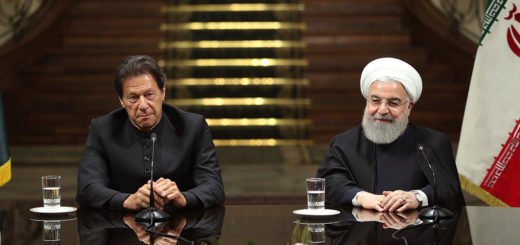Singapore Summit and China’s Strategic Assumptions in East Asia

For China though, no matter what the outcome of the summit, it has both positives and negatives to think about | Image: Korea Daily Times
Thus it appears as if after pulling out a credible Iran deal, one which has enough checks and balances as well as the involvement of other like-minded countries, The US President Donald Trump gave away a lot in Singapore in return little verifiable in return from Kim. It appears as if North Korea, a de-facto nuclear power, is the bigger winner out of the Singapore summit. Donald Trump did have his moment of unilateral glory in Singapore but if Japan and South Korea came out on top, then they would have more reasons to worry. Moreover, China’s headaches would rise were they to act on those worries.
Until the Singapore summit, Donald Trump and Kim Jong-un had fairly same reasons for direct talks. For Trump, it was his desire to stamp the American supremacy. He sought to show China its place, after years of engagement policy by Obama by first completely discrediting the Six-Party talks which were not only China-initiated but also China-led. He used social media on one hand and back channels on the other for this purpose. China’s waning decisive powers were also showcased when the DPRK tested its ballistic missile Hwasong-15 barely after Beijing’s special envoy Song Tao landed back after a visit to Pyongyang.
On the other hand, for Kim, meeting with President Trump was a statement of status, of recognition of his country’s capacity and for him personally as having achieved something unprecedented that could not be by his father or grandfather. For a state and for a leader that is without much direct diplomatic communication with the outside world this is a big step in gaining international legitimacy.
The joint statement signed by Donald Trump and Kim Jong-un leaves a lot to interpretation and that is what the success or failure of this process will depend on. For example, the phrase “complete denuclearization of the Korean peninsula” is an open-ended phrase and can mean differently depending on whether one is reading it. A classic egg or chicken dilemma is not unlikely as a consequence.

It appears as if North Korea, a de-facto nuclear power, is the bigger winner out of the Singapore summit | Image: reuters
For China though, no matter what the outcome of the summit, it has both positives and negatives to think about. For starters, China is likely to say that the joint statement is nothing but an affirmation of the policy of “double freeze” that it has been recommending for more than a year now. Having sorted out the relations with Kim over two “informal” meetings, China is likely to believe that it retained its stake over the process and that Kim got away with a less stringent deal than expected.
On the other hand, what happens to the US security alliance systems in the region is a bigger question from a long-term perspective. Trump’s unilateral decision to halt the joint exercises with South Korea and also to call it expensive and very provocative and his wish-list to see all of the 32,000 American troops home would have come as a surprise for Seoul. Tokyo would also be watching the developments closely because there are approximately 40,000 US troops stationed in the more than 20 bases that the US has in Japan. At present, Japan and South Korea face threats not only from North Korea and have their concerns vis-à-vis China, they also have disputes over islands and maritime territories between themselves. In addition, there are unsettled issued over history and its interpretation.
In addition, the US is likely to prioritize the elimination of North Korea’s Intercontinental Ballistic Missiles (ICBMs) first before denuclearization as such. While this eliminates direct threats to the continental US, it does little to assure Japan of its security. Japan’s response in such scenario is likely to be a faster paced and more proactive self-defence policy, which is already more proactive than it was a decade ago. This will surely follow an activist security posturing on part of South Korea and if that were to happen, the East Asian security architecture would face an unprecedented rupture.
While China detests the fact that the US controls the East Asian security architecture and drives the process of it, it is neither willing nor capable of burdening more responsibility for the same. Rather, stability driven by overarching American presence has allowed Beijing to be assured of its immediate security environment, even if does not want to acknowledge it as such and to pursue strategic goals in form of BRI and “support bases” in East Africa. Thus, as East Asian arms race would be Beijing’s biggest nightmare at the moment.
There is no escaping the fact that the Singapore deal has brought out more questions than answers and these questions can dictate the East Asian security scenario in the days to come.
*Dr Avinash Godbole is an Assistant Professor with O P Jindal Global University, specializing on China studies and international relations.
The views and opinions expressed in this article are those of the authors and do not necessarily reflect the views of The Kootneeti Team.


















